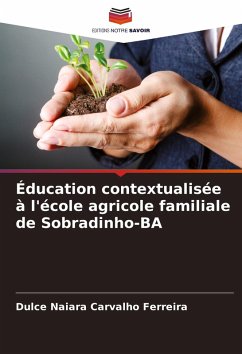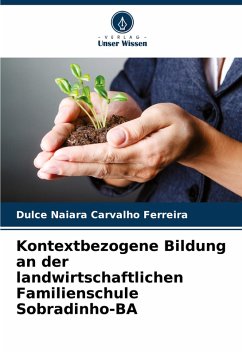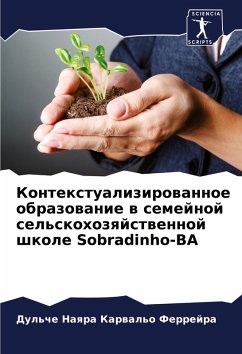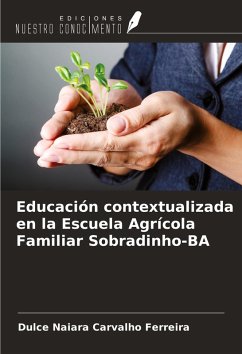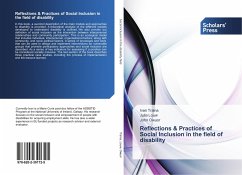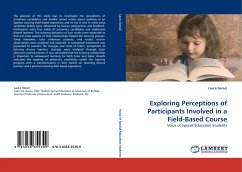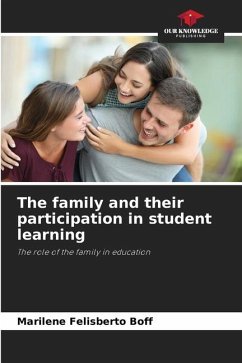
Contextualised Education at the Sobradinho-BA Family Agricultural School
Versandkostenfrei!
Versandfertig in 6-10 Tagen
24,99 €
inkl. MwSt.

PAYBACK Punkte
12 °P sammeln!
Brazilian family farming is extremely diverse and can be defined as all agricultural production units operated on a family economy basis, including those activities carried out on small and medium-sized properties with the family's own labour force. Their definitions are not unanimous. However, they all have three basic attributes: management, ownership and family labour (ABRAMOVAY, 2004). Contextualised education in the countryside uses the pedagogy of alternation as a teaching-learning process that takes place both at school and in the family environment, on a rotating and cyclical basis, re...
Brazilian family farming is extremely diverse and can be defined as all agricultural production units operated on a family economy basis, including those activities carried out on small and medium-sized properties with the family's own labour force. Their definitions are not unanimous. However, they all have three basic attributes: management, ownership and family labour (ABRAMOVAY, 2004). Contextualised education in the countryside uses the pedagogy of alternation as a teaching-learning process that takes place both at school and in the family environment, on a rotating and cyclical basis, requiring student intervention throughout the process in order to make connections between knowledge. The student will be more than a spectator, as they used to be in traditional education, and will now have a central role as an agent who can solve problems and change themselves and the world around them (SILVA, 2013). The aim of this work was to acquire knowledge about contextualised education in the countryside, which contributes directly to the development of EFAS students and their communities.





